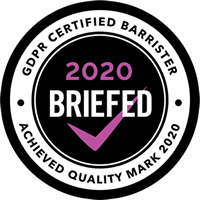
COURT OF APPEAL DECISION IN EASYNET GLOBAL SERVICES LTD
19th January 2018
The recent Court of Appeal decision in Easynet Global Services Ltd [2018] EWCA Civ 10 (18 January 2018) has underlined the breadth of the Cross-Border Mergers Directive 2005/56/EC (since consolidated into Directive (EU) 2017/1132) and the UK regulations implementing it, the Companies (Cross-Border Mergers) Regulations 2007.
The case involved the first step in a proposed merger of 22 companies within the same group. There were 21 UK companies and one Dutch company. The Dutch company was a dormant subsidiary that had never traded, had no appreciable assets and no liabilities or employees. The Appellant, one of the UK companies, was the proposed transferee. It would have been the only company remaining after the merger.
The merger offered the group the most convenient and economic way of simplifying its structure and the inclusion of the dormant Dutch subsidiary gave the proposed merger the necessary cross-border element. However, the judge at first instance decided that the merger did not fall within the scope of the Regulations. He found that it was in reality a domestic company law transaction and that the inclusion of the Dutch company was a mere ‘device’.
The Court of Appeal allowed the appeal, finding that there was nothing in the Directive or Regulations that restricted the companies’ right to freedom of establishment under EU law, nor did the merger involve any abuse of law. The provisions of the Directive and Regulations should be given a straightforward interpretation according to their natural meaning and the proposed merger fell within the scope of the Directive and the Regulations.
The decision will be welcomed by UK companies planning to rationalise their group structures, even where the entities are predominantly British. It will also make Brexit planning easier.
Stephen Horan has been advising Easynet on the proposed merger. He also appeared for the company on the Appeal, together with David Scannell of Brick Court Chambers.



